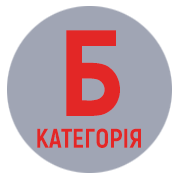MODERN CONTENT OF FAIR AND EQITABLE TREATMENT STANDARD IN INTERNATIONAL INVESTMENT LAW
DOI:
https://doi.org/10.32843/juridica/2020.2.6Keywords:
investment tribunals’ practice; components of fair and equitable standard; procedural fairness; non-discrimination; opennessAbstract
The Article is devoted to the approaches to understanding and the content of the standard of fair and equal treatment in modern international investment law through consideration of the practice of arbitration investment tribunals. Through case-law the arbitration practice has developed three approaches to understanding the standard of fair and equal treatment: (1) identifying the standard of fair and equal treatment as the same as the minimum standard of treatment; (2) the presumption of the existence of objective norms of the standard of fair and equal treatment; and (3) the "flexible" or variable nature of the standard of fair and equal treatment, which is identified depending on the specific circumstances of a case. There is no unified thought about the correctness of one approach to understanding the standard in the literature; they are the algorithms for qualifying the violation of the standard of fair and equal treatment in a particular case. At the same time, the current understanding of these approaches recognizes a dynamic evolutionary nature of the standard, which can be characterized by a general trend to expand investment protection by the international arbitration institutions, and the balance between the interests of foreign investors and state sovereignty. The new phenomenon is the extension of the standard of fair and equal treatment to the procedural sphere: a state should offer such judicial and administrative procedures under which the rights and interests of the investor can be adequately considered within a reasonable time. The Author also considers the geenral elements of the standard of fair and equal treatment that are common to all approaches to understanding the standard: (1) procedural fairness; (2) nondiscrimination; (3) openness; (4) lack of denial of justice. Each of these elements has developed in the recent practice of investment tribunals, so in the near future these elements will be the main aspects of litigation and arbitration in relation to the standard of fair and equal treatment.
References
ADC Affiliate Limited and ADC & ADMC Management Limited v. The Republic of Hungary, ICSID Case No. ARB/03/16. Award, 2006. URL: https://www.italaw.com/cases/41;
Alex Genin, Eastern Credit Limited, Inc. and A.S. Baltoil v. The Republic of Estonia, ICSID Case No. ARB/99/2. Award, 2001. URL: https://www.italaw.com/cases/484;
Azurix Corp. v. The Argentine Republic, ICSID Case No. ARB/01/12. Award, 2006. URL: https://www.italaw.com/cases/118;
Bronfman, M. K. Fair and Equitable Treatment: an Evolving Standard, Max Planck Yearbook of United Nations Law. Vol. 10, 2006, p. 609-680;
Deutsche Bank AG v. Democratic Socialist Republic of Sri Lanka, ICSID Case No. ARB/09/2. Award, 2012. URL: https://www.italaw.com/cases/1745;
Joseph Charles Lemire v. Ukraine, ICSID Case No. ARB/06/18. Award, 2011. URL: https://www.italaw.com/cases/614;
Kalicki, J. and Medeiros, S. Fair, Equitable and Ambiguous: What Is Fair and Equitable Treatment in International Investment Law? ICSID Review. Vol. 22, Is. 1, 2007, p. 24–54;
Loewen Group, Inc. and Raymond L. Loewen v. United States of America, ICSID Case No. ARB(AF)/98/3. Award. 2003. URL: https://www.italaw.com/cases/632;
Mann F. A. British Treaties for the Promotion and Protection of Investments. BritishYearbook of International Law Vol. 52, 1981, p. 241–254;
Merrill and Ring Forestry L.P. v. Canada, ICSID Case No. UNCT/07/1. Award, 2010. URL: https://www.italaw.com/cases/669;
Mondev International Ltd. v. United States of America, ICSID Case No. ARB(AF)/99/2. Award, 2002. URL: https://www.italaw.com/cases/715;
MTD Equity Sdn. Bhd. and MTD Chile S.A. v. Republic of Chile, ICSID Case No. ARB/01/7. Award, 2004. URL: https://www.italaw.com/cases/717;
North American Free Trade Agreement, 1994. URL: http://www.sice.oas.org/trade/nafta/naftatce.asp;
Parkerings-Compagniet AS v. Republic of Lithuania, Award. 2007. URL: https://www.italaw.com/cases/documents/813;
Pope & Talbot Inc. v. The Government of Canada, UNCITRAL. Award in Respect of Damages, 2002. URL: https://www.italaw.com/cases/863;
Railroad Development Corporation v. Republic of Guatemala, ICSID Case No. ARB/07/23. Award, 2012. URL: https://www.italaw.com/cases/887;
Reisman M. Canute Confronts the Tide: States versus Tribunals and the Evolution of the Minimum Standard in Customary International Law. ICSID Review Vol. 30, 2015, p. 616–634;
Reports of International Arbitral Awards. 1996. L. F. H. Neer and Pauline Neer (U.S.A.) v. United Mexican States. URL: https://legal.un.org/riaa/cases/vol_IV/60-66.pdf;
Técnicas Medioambientales Tecmed, S.A. v. The United Mexican States, ICSID Case No. ARB (AF)/00/2. Award, 2003. URL: https://www.italaw.com/cases/1087;
TECO Guatemala Holdings, LLC v. Republic of Guatemala, ICSID Case No. ARB/10/23. Award, 2020. URL: https://www.italaw.com/cases/1629;
Wang, G. International Investment Law: A Chinese Perspective. Routledge, 2015.
Waste Management, Inc. v. United Mexican States ("Number 2"), ICSID Case No. ARB(AF)/00/3. Award. 2004. URL: https://www.italaw.com/cases/1158; 23. White Industries Australia Limited v. The Republic of India, Final Award. 2011. URL: https://www.italaw.com/cases/documents/1170;
Договір до Енергетичної Хартії та Заключний акт до неї. Протокол до Енергетичної Хартії з питань енергетичної ефективності і суміжних екологічних аспектів. URL: https://zakon.rada.gov.ua/laws/show/995_056#Text.


